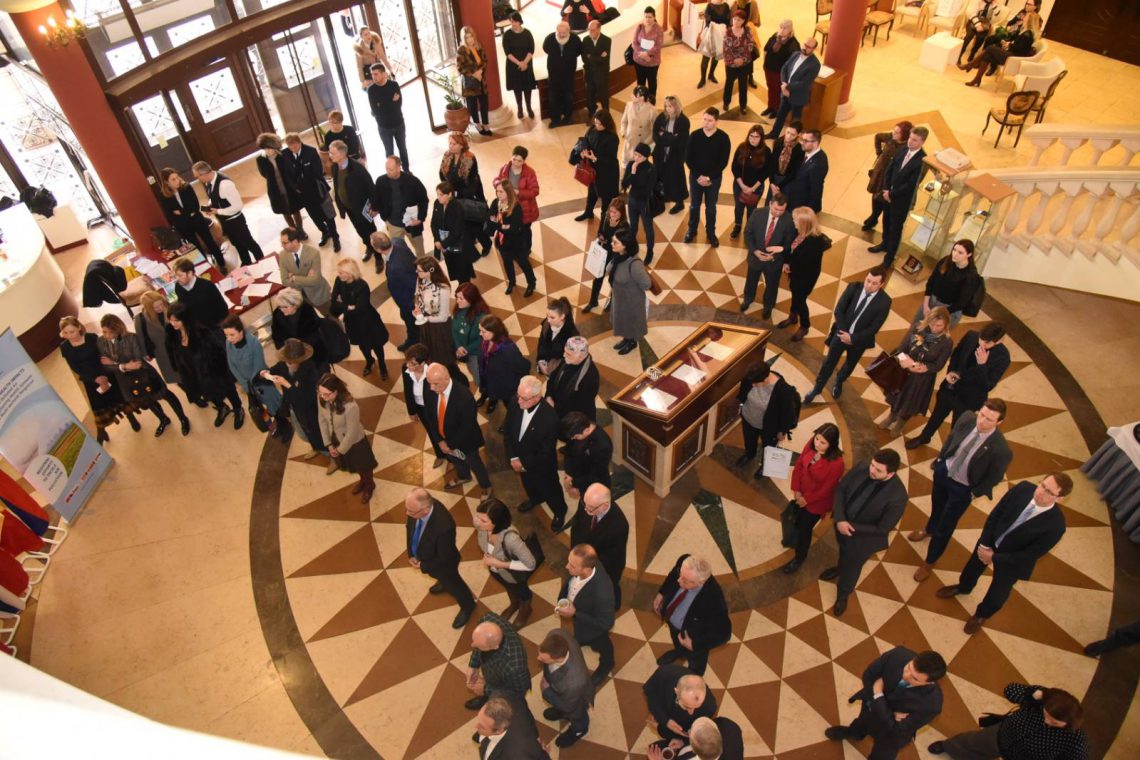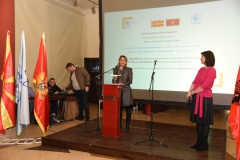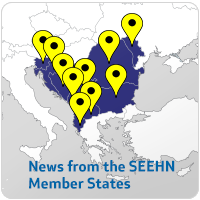
The Secretariat of SEE Health Network, under the Presidency mandate of Montenegro organized in partnership with the Embassy of Montenegro and the “Dobredojde” Macedonia Welcome Centre, Montenegro Coffee Morning, on 6 February 2020, in Skopje, the Republic of North Macedonia.
The event was dedicated to Montenegro and the “Importance of regional cooperation in public health to advocate with single voice that clean air is a human right, not a privilege!”.
The Ambassador of Montenegro to the Republic of North Macedonia, H.E. Ms. Marija Petrovic promoted Montenegro as a destination to visit and much more to discover from the “Montenegro wild beauty” towards its health tourism, products and beyond.
Head of Secretariat of SEE Health Network, Dr. Mira Jovanovski-Dasic presented the importance of regional cooperation in public health to advocate with single voice that clean air is a human right and a chronic issue persisting for a long time with consequences to our health in our Region in particular.
A safe, clean, healthy and sustainable environment is integral to the full enjoyment of a wide range of human rights, including the rights to life, health, food, water and sanitation and it is declared within the Universal Declaration of Human Rights.
SEEHN has clean air as a priority for action included in the main strategic policy document – the Chisinau Pledge from 2017. The document reflects the SDG Agenda 2030 and Health 2020 and is also translated into the WHO-SEEHN Sub-Regional Cooperation Strategy 2018-2023, signed in July 2018, in Tel-Aviv.
SEEHN took the first clear step by organizing a Regional expert round table “Reducing Health Impacts of Polluted Air- Strengthening Health Systems and Multisectoral Response in SEE Countries” on 7-8 November 2019 in Skopje, North Macedonia.
The experts from 9 Member States including observers from Turkey and Kosovo* attended and identified the following recommendations to focus on:
- Inter-sectoral actions that are key for health in all policies implementation;
- Comparable data that are key to informed based policies,
- Health risk assessments and Health Impact Assessments to be carried out;
- Regional epidemiological studies on environmental health issues (studies on pollution sources, biomonitoring, etc.)
- Human capital – that needs to continuously strengthen capacities of the health system experts, along with the imperative need to increase general population knowledge and awareness on how to protect during the especially high polluted days;
- Support to development of national/regional strategies/action plans on indoor/outdoor air quality and the decrease of air pollution.
- To establish a SEEHN RHDC on Environment and Health
Moreover, there is still so much to be done to tackle air pollution across the region with the contribution of other sectors with the final aim to empower citizens with knowledge and cleaner choices.
- To improve public transport
- To increase energy efficiency
- To enforce standards
- Reduce higher polluting cars
- Offer grants and subsides for greener policies
- To constantly raise awareness and health literacy on air pollution
- To plant trees etc.
We will all benefit from cleaner air, water and soil, as will the generations that come after us.











